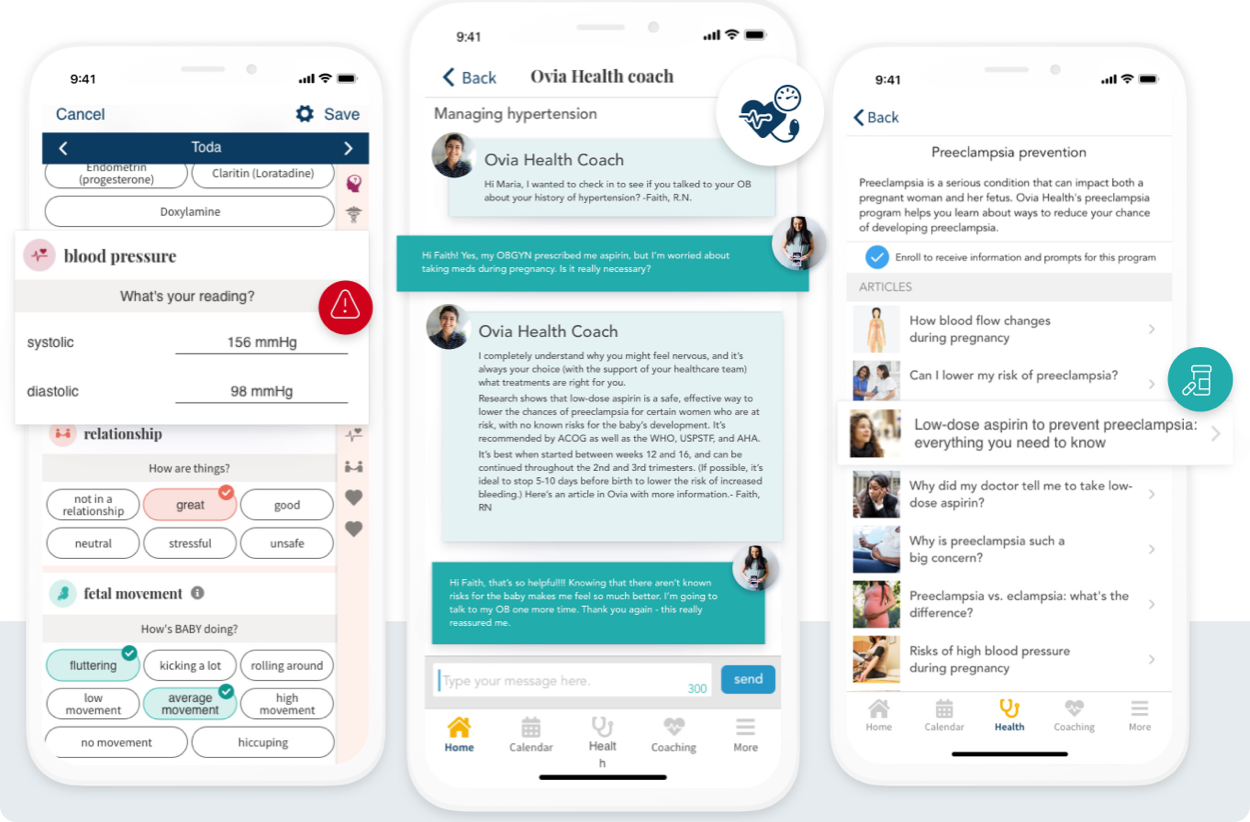- Patients Patients
Reproductive Genetics Testing
Patient Resources
Cost & Billing
- Providers Providers
- Genetic Counseling
- Login Login
- Estimate My Cost

Testing while expecting*
Key testing insights during your pregnancy journey
It’s very important to get early and regular prenatal care. The right laboratory testing assists your healthcare provider in monitoring your pregnancy and the health of your baby. Remember to consult with your healthcare provider to discuss the most appropriate tests and screenings for your individual circumstances.
The importance of screening
Prenatal care is essential from
the start of your pregnancy
It's important to start seeing your healthcare provider early and regularly and to get the laboratory tests and screenings they recommend. These tests will help your doctor monitor your pregnancy and the development of your baby.
A specific number of lab tests are suggested for all women as part of routine prenatal care.
Prenatal Testing
Prenatal cfDNA (NIPT) screening will check the genetic health of your baby.
Prenatal cfDNA (NIPT) Screening
Carrier screening can help determine if your child is at risk for specific disorders.
About carrier screening
Early Preeclampsia screening can help determine if you are at risk later in pregnancy.
Learn about the testing your physician may
order during each stage of your pregnancy
A number of lab tests are suggested for all pregnant patients as part of routine prenatal care. These tests can help confirm that you are healthy as well as determine if you have risks for you and your baby. Talk to your healthcare provider about what tests are right for you.

Week 1 to end of week 13
First Trimester

Week 14 to end of week 26
Second Trimester

Week 27 to end of pregnancy
Third Trimester

12 weeks after birth
Fourth Trimester: Postpartum
Screening for Preeclampsia During Pregnancy
Did you know 1 in 25 pregnancies in the U.S. are affected by preeclampsia?1 Preeclampsia symptoms are similar to common pregnancy-related symptoms, potentially delaying diagnosis and treatment. Most people will deliver healthy babies and recover without experiencing serious complications during pregnancy. However, it’s still important to recognize the symptoms and risk factors of preeclampsia, the leading cause of maternal and infant illness and death.
Healthcare providers may monitor for signs and symptoms of preeclampsia, such as:
- High blood pressure: This is a key indicator of preeclampsia.
- Proteinuria: The presence of protein in the urine.
- Swelling: Edema, especially in the hands, feet, and face.
- Severe headaches: Persistent or sudden, severe headaches.
- Vision changes: Blurred vision or spots in vision.
- Abdominal pain: Especially in the upper right abdomen.
Regular prenatal check-ups, including blood pressure measurements and urine tests, are crucial for early detection of preeclampsia. Early diagnosis and treatment are essential to prevent serious complications for both the mother and baby.
It's important to note that preeclampsia can develop rapidly, so it's crucial to attend all prenatal appointments and report any concerning symptoms to your healthcare provider immediately.

Labcorp’s innovative solutions for early detection.
First Trimester Test
Using a blood sample drawn between weeks 11.0 and 14.0 of your pregnancy, this test assesses your potential risk for developing preeclampsia later in your pregnancy (before 34 weeks).
Second and Third Trimester Test
Using a blood sample drawn between 23 and 34.9 weeks' gestation, this test assesses the risk of a hospitalized patient's preeclampsia progressing severely within the following two weeks.
patient story
A mother's mission to save lives by raising preeclampsia awareness
For many, pregnancy can be a very special and personal milestone. It’s also a dynamic time: both mother and baby change and evolve daily. Anything involving rapid change also comes with the potential for complication. When it comes to pregnancy, one of the most dangerous complications is preeclampsia.


Newsletter
Stay connected with us during your pregnancy journey.
We deliver helpful and educational information to your inbox to support you before and after your baby arrives!
Newsletter Signup
Ovia® pregnancy app
Ovia is your companion for the journey ahead.
Download Ovia® Pregnancy to understand development stages, track your weekly milestones, and access a library of pregnancy features and tools.

*Testing While Expecting is part of our Partners in Pregnancy™ program.
References
Centers for Disease Control and Prevention. High Blood Pressure During Pregnancy. Updated June 6, 2024. Accessed June 10, 2024. https://www.cdc.gov/high-blood-pressure/about/high-blood-pressure-during-pregnancy.html




